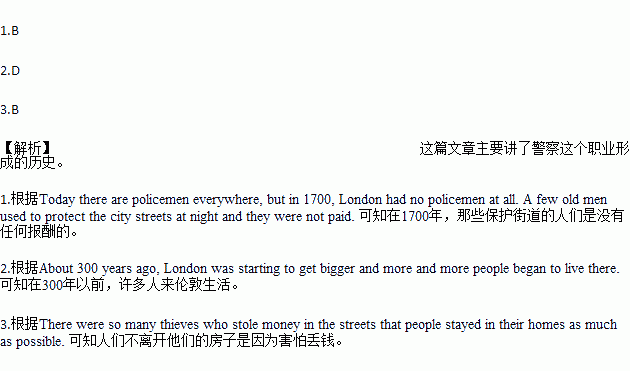题目内容
Today there are policemen everywhere, but in 1700, London had no policemen at all. A few old men used to protect the city streets at night and they were not paid.
About 300 years ago, London was starting to get bigger and more and more people began to live there. The city was very dirty and many people were poor. There were so many thieves who stole money in the streets that people stayed in their homes as much as possible.
In 1750,Henry Fielding started to pay a group of people to stop thieves. They were like policemen and were called “Bow Street Runners” because they worked near Bow Street.
Fifty years later, there were 120 “Bow Street Runners”, but London had become very big and needed more policemen. So in 1829 , the first Metropolitan(or London)Police Force was started with 3,000 officers. Most of the men worked on foot, but a few rode horses. Until 1920 all the police in London were men.
Today, London police are quite well paid and for the few police officers who still ride horses, the pay is even better than for the others.
1.In 1700, the men who protected the streets were paid __________ .
A. a few B. nothing
C. a little D. a lot
2.About 300 years ago, many people __________.
A. wanted to leave London B. had big houses in London
C. became policemen D. came to live in London
3.People didn’t leave their houses because __________ .
A. they had no money B. they were afraid of losing money
C. the city was not clean D. they liked homes

